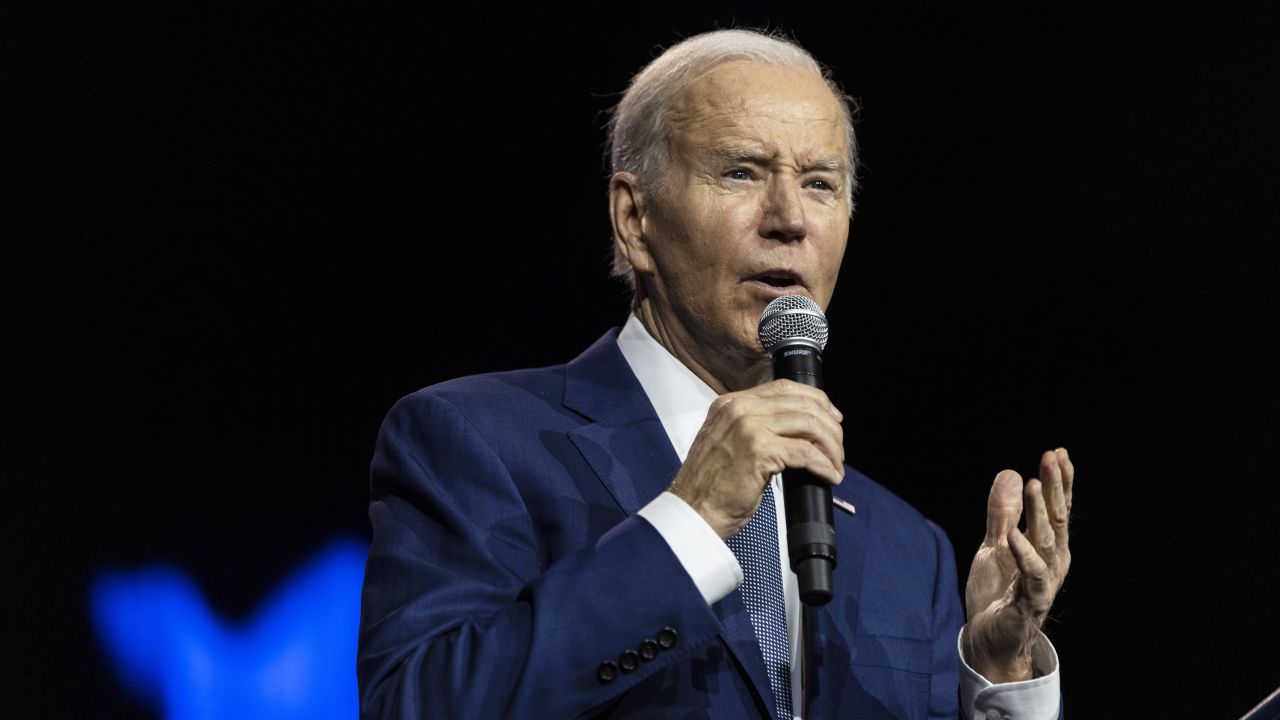Foreign
Washington’s domestic drama is threatening its global leadership

Summary: America will struggle to meet its global aspirations unless its leaders can make progress resolving its domestic controversies.

This week’s drama over the federal debt ceiling almost certainly has U.S. allies and adversaries scratching their heads and wondering how serious Washington is about leading the world. Not only has the United States appeared to verge on a debt default—an act that would buckle the international economy—but President Joe Biden has also been forced to cancel part of a major trip to Asia that aims at two top U.S. foreign policy priorities, Russia and China.

Christopher S. Chivvis
Christopher S. Chivvis is the director of the American Statecraft Program at the Carnegie Endowment.
Regardless of whether one thinks the debt limit should be raised, this week’s showdown is a sign of the risks that mounting partisanship in Washington poses to America’s traditional world leadership role. In an era of global strategic competition, the United States will be entering the ring with one hand tied behind its back if its leaders can’t make progress on their domestic disagreements and moderate vicious political polarization.
The cancellation of Biden’s visits to Papua New Guinea and Australia isn’t catastrophic in itself. Biden will still attend the G7 in Japan, where he will also meet with the leaders of Australia, India, and Japan, known as the Quad. (The Quad meeting was originally planned to take place in Australia.) Biden plans to use these meetings to tighten sanctions on Russia and reinforce the Quad as a democratic alternative to China in the Indo-Pacific. But the episode underscores serious risks that Washington’s dysfunction poses to America’s future role in the world.
Foreign leaders will doubt American reliability more and more, hurting Washington’s relationships with the very countries whose loyalty it’s competing for with Beijing. Nations such as Brazil, India, Indonesia, South Africa, and Turkey have been hedging their bets and avoiding caucusing with the United States on major priorities like the war in Ukraine. But Washington’s apparent willingness to throttle the global financial system and bring down their economies is only going to make these fence-sitters more reluctant to lean toward Washington on the issues that will matter in the future.
Meanwhile, the high jinks puts another dent in the armor of the U.S. dollar, whose hegemony in the international monetary system has brought extraordinary advantages to the United States for decades. The rapid enlargement of so-called secondary sanctions in recent years has already led countries to begin looking for alternatives to the dollar for their international transactions. Beijing hopes someday to fill in the gap with the yuan. Even if it’s decades before that happens, the possibility of U.S. default is bound to help make Beijing’s case that its time will come.
More important, the very fact that the president was forced to scratch parts of a trip that aimed at one of his top foreign policy priorities—building a coalition of partners in Asia who are also uneasy about China—shows how much U.S. domestic squabbles can damage America’s ability to make credible commitments, whether to allies, partners, treaties, or other global contracts. Such polarization means that American diplomats will face an uphill battle when they try to convince other nations that Washington can keep its word beyond one election cycle. This is also going to intensify the tendency of many countries to hedge their bets between the United States and its adversaries, especially Russia and China.
Washington’s dysfunction also helps its autocratic adversaries in the global contest over ideology. China has been trying to woo countries around the world by offering an authoritarian alternative to America’s liberal economic and political model, one that touts the purported advantages of political and economic stability through authoritarian means. But the more chaotic U.S. democratic politics looks from Africa, the Middle East, Asia, and Latin America, the more Beijing will make headway in persuading the undecideds that its authoritarian alternative actually makes sense.
There are no easy solutions for political polarization, and it’s likely that the worst of this current brinkmanship will be avoided. But America’s leaders need to do more to get their domestic house in order if the United States is to maintain the far-reaching global role to which it aspires.
Carnegie does not take institutional positions on public policy issues; the views represented herein are those of the author(s) and do not necessarily reflect the views of Carnegie, its staff, or its trustees.

Foreign
Hamas claims spokesperson killed in Israeli strike on northern Gaza

Earlier this week, Israel killed Ismail Barhoum, a member of Hamas’ political office, and Salah al-Bardaweel, another senior leader.

Hamas spokesman Abdel Latif al-Qanou was allegedly killed in an Israeli airstrike on northern Gaza, Hamas-affiliated news agency Shehab reported on Wednesday night.

Al-Qanoa was one of Hamas’s most prominent spokesmen in Gaza, and while he avoided media appearances during the months of fighting, he gave multiple interviews to Arab news channels after the ceasefire.
Al-Qanoua was killed when his tent was targeted in Jabaliya, the Hamas-run Al-Aqsa television reported. The same strike wounded several people, medical sources said.
Earlier this week, Israel killed Ismail Barhoum, a member of Hamas’ political office, and Salah al-Bardaweel, another senior leader.
Both Bardaweel and Barhoum were members of the 20-member Hamas decision-making body, the political office, 11 of whom have been killed since the start of the war in late 2023, according to Hamas sources.
Tents for Palestinians seeking refuge are set up on the grounds of a United Nations Relief and Works Agency for Palestine Refugees (UNRWA) centre in Khan Yunis in the southern Gaza Strip on October 19, 2023, amid the ongoing battles between Israel and the Palestinian group Hamas (credit: MAHMUD HAMS/AFP via Getty Images)
The IDF has yet to comment on the alleged elimination.
Increased IDF pressure in the Gaza Strip
Since fighting in Gaza was renewed at the beginning of last week, the IDF has killed 150 terrorists, including 10 top Hamas officials, The Jerusalem Post learned Tuesday.
In certain areas, the military has entered a full kilometer into Gaza, such as around the Nitzanim Corridor in central Gaza.
In addition to central Gaza, Beit Lahia, Beit Hanoun, parts of Khan Yunis, Shaboura, and Tel Sultan, the IDF has been evacuating and moving into Jabaliya.

Foreign
Dead Nigerians, Africans, others without will may lose unclaimed estates in UK

Hundreds of unclaimed estates reveal untold stories of African migration, wealth, and family ties left behind.
Thousands of people die every year in the United Kingdom without leaving a will or identifying next of kin, and among them are many Nigerians and other Africans whose estates—ranging from property to savings—remain unclaimed.
The UK government’s latest list of unclaimed estates, updated daily, includes over 170 entries connected to African-born individuals, with Nigerians making up a significant portion of the cases.

A Legacy Lost
For many migrants, the UK became a home away from home—a land of opportunity where they built wealth, purchased property, and created a life.

However, the absence of a will often results in their assets being classified as “bona vacantia” (ownerless goods), leaving them to the custody of the Crown.
Families back in Africa are frequently unaware of these estates, leading to a permanent loss of assets.
Cases like that of Adenike Adebiyi, who passed away in Hackney, London, in 2004, or Solomon Adekanmibi, who died in Colchester, Essex, in 2021, highlight the consequences of dying intestate.
With no identified next of kin or missing documentation, their estates remain unclaimed, and their legacies risk being forgotten.
Why It Matters
This phenomenon underscores a critical issue: many African families are unaware of their relatives’ financial situations abroad.
Migration often disrupts communication, and without clear documentation, the wealth built overseas remains beyond reach.
The loss isn’t just financial—it’s deeply cultural and emotional. Unclaimed estates represent untold family histories, connections, and the struggles of migrants who built their lives in the diaspora.
The Challenges
Lack of Awareness:
Most families in Nigeria and other African countries are unaware of their relatives’ estates abroad or how to access them.
Genealogical Gaps:
The information provided in official records is often incomplete. For example, many entries in the UK unclaimed estates list lack detailed family history or next-of-kin information.
Cultural Hesitations:
In many African cultures, discussing death and wills is considered taboo, leading to reluctance in planning for asset distribution.
A Call to Action
African governments, community organizations, and legal professionals need to raise awareness about this issue.
Here’s what can be done:
Encouraging Will Writing: Migrants in the diaspora should be educated about the importance of drafting wills to protect their assets.
Genealogical Support: Families in Africa can be assisted in tracing unclaimed estates through local or international partnerships.
Public Awareness Campaigns: Social and traditional media can highlight the importance of estate planning and share resources for families.
How to Check the List
The UK government maintains a public Unclaimed Estates List that is updated daily.
Families can search the list by name, place of birth, or other identifiers to check for potential claims.
Final Thoughts
For many Nigerians and Africans in the UK, their unclaimed estates represent more than just wealth—it’s a story of migration, resilience, and identity.
By addressing this growing issue, families can reclaim their heritage, and the legacy of those who journeyed to the diaspora need not be forgotten.
Here is the latest daily update as of March 24, 2025. Check the list

Foreign
Israel approves controversial proposal to facilitate emigration of Palestinians from Gaza

Israel’s security cabinet has approved a controversial proposal to facilitate Palestinian emigration from Gaza, a move critics warn could amount to ethnic cleansing.

Israeli Finance Minister Bezalel Smotrich on Sunday said the security cabinet approved the proposal by Defense Minister Israel Katz to organize “a voluntary transfer for Gaza residents who express interest in moving to third countries, in accordance with Israeli and international law, and following the vision of US President Donald Trump.”

The decision marks a remarkable endorsement of a plan once considered a far-right fantasy – and comes despite the prime minister’s earlier pledge not to permanently displace Gaza’s civilian population.
Critics have said that any mass displacement of Gazans in the midst of a devastating war would amount to ethnic cleansing, an act associated with war crimes and crimes against humanity under international law. Israeli officials have countered that emigration would be voluntary and in line with international legal standards.
But aid groups argue that Israel’s war has made life in Gaza nearly impossible. Martin Griffiths, the United Nations’ top emergency relief official, has called the enclave “uninhabitable,” saying its people are “witnessing daily threats to their very existence.”
The Israeli approval would establish an administration within the defense ministry “to prepare and facilitate the safe and controlled movement of Gaza residents who wish to voluntarily move to third countries,” according to a statement from the defense ministry.
Its work would include “establishing movement routes, pedestrian checks at designated crossings in the Gaza Strip,” and infrastructure to enable people to leave.
Israeli officials have presented the plan as a fulfillment of a desire by Trump to take over Gaza, expel its Palestinian population to neighboring countries and turn it into a Middle Eastern “riviera.”
The Palestinian Authority’s Minister of State for Foreign Affairs Varsen Aghabekian Shaheen told CNN’s Becky Anderson last month that Palestinians “are steadfast to stay in their land and will not move.”
Trump’s ‘vision’
Katz said Sunday that Israel is using “all means to implement the vision of the US president,” according to the defense ministry statement.
This month, Trump appeared to backtrack on his comments about displacing Palestinians, telling reporters that “nobody is expelling any Palestinians.” Steve Witkoff, the US special envoy to the Middle East, said last month that the US initiative to rebuild Gaza won’t necessarily amount to an “eviction plan” and that it was designed to “shake up everybody’s thinking.”
Last year, Israeli Prime Minister Benjamin Netanyahu said his country had no intention to displace Palestinians or occupy Gaza.
Related articleTrump says ‘nobody is expelling Palestinians,’ weeks after saying they should be moved to Arab states
“I want to make a few points absolutely clear: Israel has no intention of permanently occupying Gaza or displacing its civilian population,” Netanyahu said in a video statement in January 2024.
Trump’s proposal has, however, brought the idea further into the mainstream, with Israeli politicians now openly discussing mass emigration of Gazans as a solution to the war. And Katz last week said that Israel may maintain a permanent presence in the enclave.
Israeli rights group Peace Now criticized the plan, saying “the establishment of the administration to expel Palestinians from Gaza is one of the stupidest moves by a government that has lost all direction and logical thinking.”
The prospect has also drawn sharp rebuke from Arab leaders, especially Egypt and Jordan, who would be expected to absorb the large number of expelled Palestinians. Experts have also warned that displacing Palestinians would further destabilize the region and threaten the security of neighboring states.
Smotrich said Sunday that the security cabinet also approved the expansion of Jewish settlements in the occupied West Bank, noting that 13 areas in the West Bank would be split from existing settlements and would be recognized as independent settlements.
“Instead of hiding and apologizing – we are raising the flag, building, and settling. This is another important step on the path to actual sovereignty in Judea and Samaria,” he said, using the name by which Israelis refer to the West Bank.
The Yesha Council, an umbrella body representing Jewish settlements, said that as of January 2024, there were 150 settlements in the West Bank.
It said that the decision exposes a “long-standing lie that (Israel) does not establish new settlements, but only ‘neighborhoods’ of existing settlements” and that it is “another nail in the coffin that the Government of Israel is preparing for the only chance for a future of peace and security.”
A statement sent by Smotrich’s office said the move comes against “the backdrop of the approval of tens of thousands of housing units in Judea and Samaria and represents another significant step in the process of normalizing and regulating the settlement.”
Smotrich and other right-wing ministers have been pushing an aggressive expansion of settlements on the path to declaring Israeli sovereignty over the West Bank, which would be in defiance of international law and UN Security Council resolutions.
Israel says it will maintain ‘permanent’ presence in Gaza unless hostages are freed

-

 Politics1 week ago
Politics1 week agoOpposition leaders announce coalition to challenge Tinubu in 2027
-

 Politics1 week ago
Politics1 week agoYahaya Bello deceptively arranging recall of Senator Natasha, desperate to replace her – Constituents
-

 Foreign1 week ago
Foreign1 week agoHouthis declare Ben-Gurion Airport ‘no longer safe’ after renewed Gaza fighting
-

 News1 week ago
News1 week agoWhy Christ Embassy’s Pastor Chris holds Abuja mega crusade – Fisho
-

 News1 week ago
News1 week agoUmeh denies receiving $10,000 with other 42 Senators to support state of emergency in Rivers
-

 Crime1 week ago
Crime1 week agoGhana’s anti-drug agency nabs Nigerian drug kingpin, Uchechukwu Chima, seizes $2.1m worth of cocaine, heroin
-

 Politics1 week ago
Politics1 week agoAtiku, El-rufai, Obi condemn Tinubu’s suspension of Rivers Governor, demand reversal
-

 Business1 week ago
Business1 week agoFlutterwave, FIRS collaborate to digitize tax collection in Nigeria





















